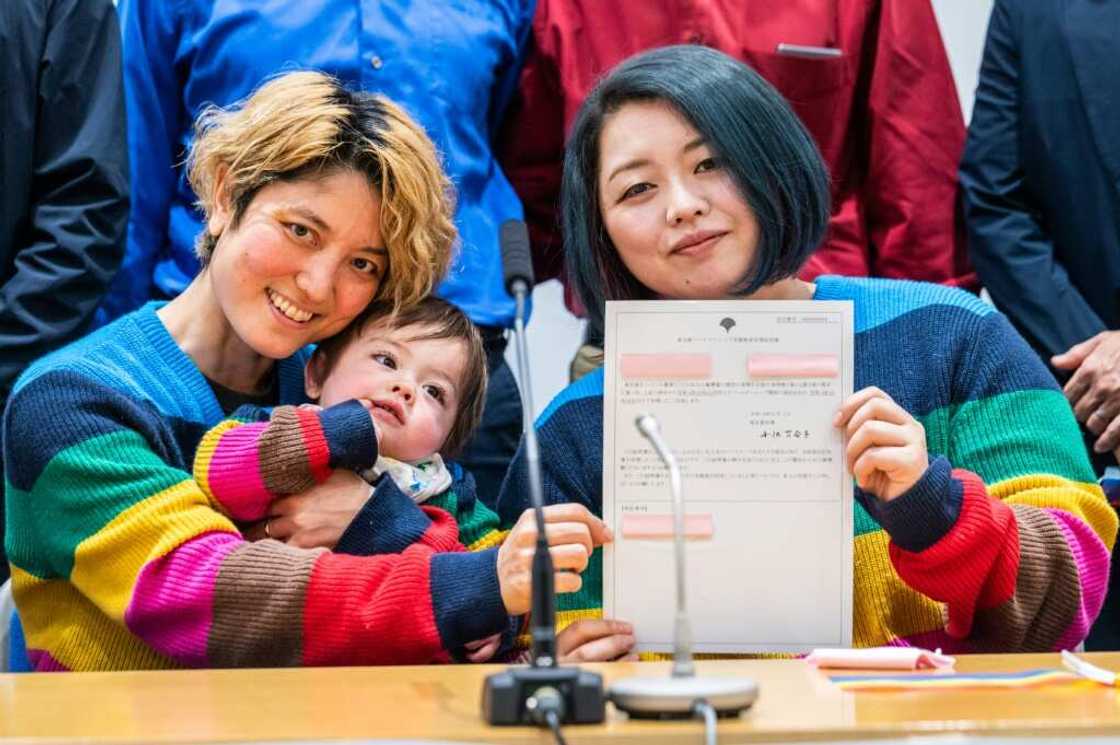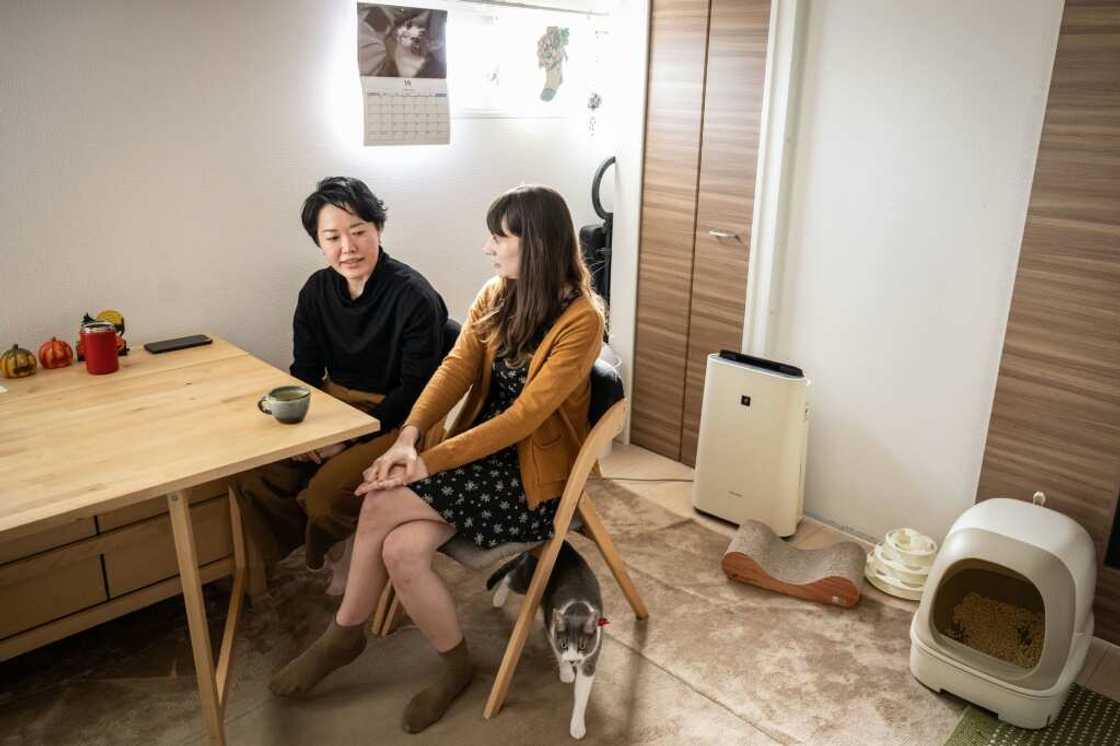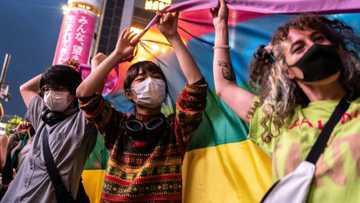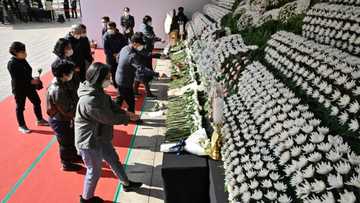'Huge step forward': Tokyo recognises same-sex relationships

Source: AFP
Tokyo began issuing partnership certificates to same-sex couples who live and work in the capital on Tuesday, a long-awaited move in a country without marriage equality.
The certificates allow LGBTQ partners to be treated as married couples for a range of public services in areas such as housing, medicine and welfare.
More than 200 smaller local authorities in Japan have already made moves to recognise same-sex partnerships since Tokyo's Shibuya district pioneered the system in 2015.
While the status does not carry the same legal rights as marriage, it represents a welcome change for couples like Miki and Katie, who have long had no official proof of their relationship.
"My biggest fear has been that we would be treated as strangers in an emergency," Miki told AFP at home in Tokyo, where photos of the Japanese 36-year-old with her American girlfriend Katie, 31, adorn the fridge.
Without a partnership certificate, the couple, who asked to be referred to by their first names, used to tuck a note inside their wallets with the other's contact details.
PAY ATTENTION: Share your outstanding story with our editors! Please reach us through info@corp.legit.ng!

Source: AFP
"But these were insubstantial, and we felt official documents certified by the local government would be more effective," Miki said as their grey-and-white cat frolicked in a rainbow necktie.
As of Friday morning, 137 couples had applied for a certificate, Tokyo Governor Yuriko Koike said last week.
Hopes are high that the introduction of the same-sex partnership certificates, which cover both residents and commuters, will help fight anti-LGBTQ discrimination in Japan.
"Through this Tokyo partnership system, I sincerely hope we can accelerate efforts to create a society where the rights of sexual minorities can be protected, and made more equal," campaigner Soyoka Yamamoto told a press conference on Tuesday.
Yamamoto and her partner Yoriko, who have lived together for more than a decade, received their certificate that morning.
"I hope we can now access various facilities and services, without having to explain our relationship," Yoriko said, calling the move a "huge step forward".
'More flexible'
Recent years have seen Japan -- run by a conservative ruling party that espouses traditional family values -- take small steps towards embracing sexual diversity.
More firms are now proclaiming support for same-sex marriage, and gay characters feature in TV shows with greater openness.
A 2021 survey by public broadcaster NHK showed 57 percent of the public was in favour of gay marriage, versus 37 percent against.

Source: AFP
But hurdles remain, with a court in Osaka ruling in June that the country's failure to recognise same-sex unions was constitutional.
That marked a setback for campaigners in the wake of last year's landmark verdict by a Sapporo court, which said the current situation violated Japan's constitutionally guaranteed right to equality.
Prime Minister Fumio Kishida has been cautious about the possibility of legislative changes that would recognise same-sex partnerships on a national level.
Meanwhile, Noboru Watanabe, a local assemblyman for Kishida's ruling Liberal Democratic Party, came under fire last month for calling same-sex marriage "disgusting".
"Some politicians have made really negative comments, like that we are mentally ill," Katie told AFP.
But "families are not always made up of a mother, a father and two kids. We should be more flexible," she said.
Miki and Katie threw a wedding party last month, but despite their joy at the introduction of the new system, they acknowledge its limitations.
The right to inheritance in the event of a partner's death is still not guaranteed, while Katie's lack of spousal visa status makes her ability to stay in Japan less stable.
"I feel that Japanese people's level of understanding towards same-sex marriage is now high enough", Miki said.
"All that's left is for policymakers to be serious about it, and make changes".
Source: AFP





